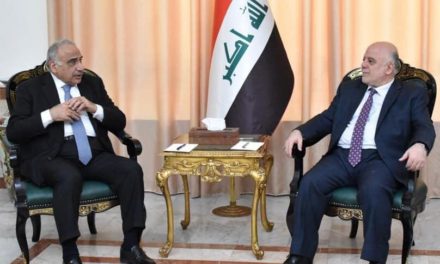A mural of Iraqi poet Badr Shakir al-Sayyab in Baghdad
Iraqi literary language comes from its original source; the Sumerian language. This distinctive linguistic structure is not ambiguous to many readers and scholars from which many cultures of the world gain.
To define prose, it is an old style of linguistic wording, and it is new in the reference of meaning. It is used in the writing of novels, stories and plays because it is easy to be used. Prose is a helpful tool for the writer that ignites his or her imagination and produces a distinctive written text.
Prose endeavors to ascend the image, view or inanimate into an outstanding literary language where the language of the Iraqi novel has endeavored to achieve it since its beginning.
Iraqi literature in total and prose in particular has employed social problems and how to solve them as literary matters. In other words, it discerns with L’esprit de l’escalier (Staircase Wit), which aims to discuss the matter of living. This L’esprit de l’escalier (Staircase Wit) does not decrease the value of the cultural writings, but many readers paid attention because it was written in an understandable style and far from showy decoration. Prose, as a matter of fact, has employed a principle, which endeavors to serve others. In fact, this has helped the linguistic cultural reality to rise up for non-cultural purpose.
The language of renowned Iraqi poet Badr Shakir al-Sayyabs’ poems may be one of the most distinctive examples which have raised up Iraqi literature to the climax because it is an understandable, easy language which holds a gist and goal, aiming to reach to all of social classes, readers, simple people and intellectuals. This trait helped his poems to go around Arab lands where they were translated into many languages. These outstanding features have not emerged from nothing, but it is a result of generating an understandable easy language, which comes from its civilized wellborn origin (Cuneiform Script).
The inflow of this poetic language has transferred into the Iraqi novelistic prose by the cumulative positive rhythm, resulting in making it as a functional objective more than a mere writing form. This trait has paved the way to prose to what Iraqi poetry endeavors to consolidate its elements where prose has occupied the first place and surpassed poetry finally. The language of prose has transferred into a social aim instead of being as a writer’s ambition to the extent that prose has become in the first place among all the arts like stories, poetry and plays.
On other words, the language of prose has endeavored since its emergence to a certain aim based on the cultural side. Thus, the reader gains a great amount of cultural education on the level of history, civilization and political alternatives. The style of prose adopts the living matters and aims to suggest certain solutions through writing, so that a large amount of people can make advantage of it.
If we follow the path of its consolidation, we will notice that prose comes in line with what is said in advance. In 1919, the first Iraqi novel appeared, and it was nearly a play rather than a narrative text. But this does not prevent that its language contains social reality and discussing its circumstances. At that time, the novels endeavored to raise existential questions connected with the human beings.
The language of novels has continued cumulatively to render its language into new style after 2003, using modern techniques, developed ideological thinking and employing a narrative language which can cope with the changes of the era.
Language of Iraqi novels after 2003 represents modernization and the topics looking forward to the humane absent. It endeavors to view the transformations with all its levels and focuses on the sectarian displacement, killing on ID, violence and discussing the hard-living matters. Some novels are interested in pointing out the structural collapse of the Iraqi people and the problem of identity where these novels have become more realistic with direct prose, leaving the concept of allegory and symbolism.
Iraqi prose has adopted the theme of terrorism as an essential element to depict the image of the antagonist used against others. It also depends on mythology, popular heritage and the historical dialogues, making all these parts of themes as elaborated prose.
This does not mean that all novels after 2003 adopts positivity as an element, but there are large numbers of novels adopt monotony by a fixed structure employed by many novelists. There are also many novels, which have adopted used themes, while others are in lack of narrative techniques, leading to collapse large number of novels, which aimed to fame only. These novels have become mere subjects, but it does not belong to prose because the success of other novels covered on these monotonous novels.
Exile, as a matter of fact, has helped for large number of novelists to motivate and raise good proses, which are able to depict the sorrow of expatriation and the pain of the present mingled with absence. Nevertheless, a new trend has emerged which so-called the woman writing and established a new contribution for women participate in the Iraqi culture as well.
Despite the central elements of developing Iraqi prose, the simple and intellect reader can keep an eye on the distinctive difference between the primary narrative language and the instant narrative language which has adopted the present, ideology, the developed technology and freedom of thinking as essential themes to contribute the linguistic structure, including the continuity of writing on subjects which are considered taboo.

Wassan Morshed
Wassan Morshed is a PhD student in modern literacy at Baghdad University, College of Education for Girls. She has published a book, The Taboo in the Poetry of Adnan Sayegh.










